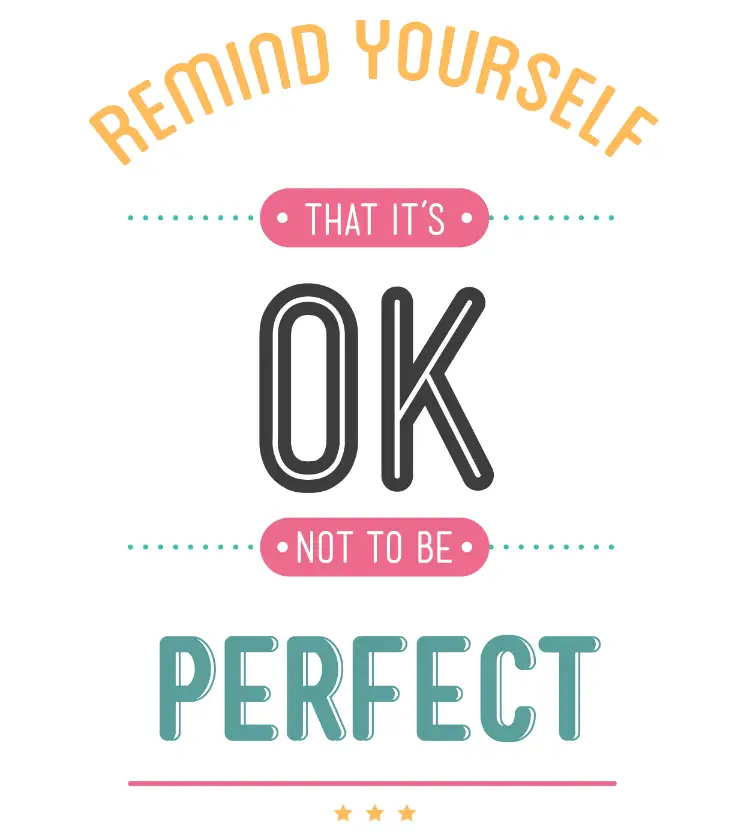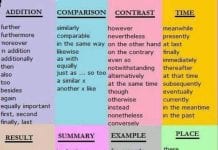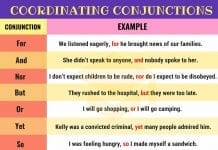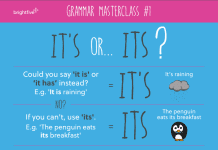
You might have heard of the imperfect tense before – you might even use it in your own language. In Spanish, it’s the difference between “estuve” and “estaba.” In French, it’s the difference between “je mange” and “je mangeais.”
In fact, many languages have some form of the imperfect tense built into their grammar, some in more subtle ways than others. English is no exception to this, for even though it is not necessarily considered to be a standard tense, there actually many ways that the imperfect tense in English can be expressed.
What is past Progressive?
The imperfect tense is a combination of the past tense and a continuous or repeating aspect. Oftentimes, this includes a sense of incompletion in the verb, but not always. In English, there are a few ways to make a verb imperfect. One of them is the utilize what is called the past progressive tense. For example:
- I was shopping at H&M earlier today. (Continuous/repeating action in the past)
As opposed to:
- I shopped at H&M earlier today. (Simple, completed action in the past.)
Used to
However, the focus of this article is a different way to express the imperfect tense, which also has a slightly different meaning. This is the phrase used to. While indicating a repeating action in the past, it also carries the meaning “in the past but not anymore.”
You can use it if you want to describe something that you were or did a long time ago, but no longer in the present.
For example:
- I used to shop at H&M. (I shopped at H&M in the past, but not anymore.)
- I used to like shrimp, but I guess my taste has changed since.
- “Do you smoke?” “I used to, but I quit.”
Note that while the word “use” is normally pronounced with a “z” sound, it is actually pronounced with the voiceless “s” sound when used in this phrase. Phonetically, it looks like this: /ˈjustu/ or /ˈjustə/.
When using this phrase in a question that involves the word “did,” be careful to remove the “d” from “used.” But don’t worry – the pronunciation should stay the same, and most people (native speakers included) tend to misspell it anyway.
- What did you use to do for a living?
- Did he use to live in that house?
Oftentimes, you might see something like Did he used to… It is technically incorrect, but not such a big deal.
The phrase used to gets a bit trickier when used in negative sentences because there are formal, written usages and more casual, spoken usages you can follow. For a common way to say that you did not do something in the past (but you probably do now), you use the phrase didn’t use to or did not use to. For example:
- I didn’t use to play in the band; I just joined recently.
- He did not use to be an alcoholic, but I think the divorce really got to him.
- “Have you always slept in this much?” “Well, I didn’t use to, but I stay up pretty late nowadays…”
An alternative to this is to put the word “not” after the phrase used to, creating the phrase used to not. While didn’t use to is a more neutral expression of negation, used to not connotes a greater sense of purpose, almost as if a choice was actively being made not to do something. It also tends to be a more casual expression.
- When I was younger, I used to not go to school by pretending to be sick.
- My girlfriend and I used to not talk about politics because it would always get us into fights.
- He used to not worry about things like that. I don’t know why it’s getting to him now.
Another way to negate the phrase used to is with the word never, though the meaning can change slightly depending on where never is placed. Note the difference here:
- I never used to watch horror movies. (I never watched horror movies in the past.)
- I used to never watch horror movies. (I purposefully avoided watching horror movies in the past.)
If you’re concerned about formality, the most grammatically correct way to negate the phrase used to is to place the word “not” in between, forming the phrase used not to.
- The economy used not to be as robust compared to the effects of today’s influx of tourism.
However, this convention should be reserved mostly for written language, otherwise you might cause some confusion in your listeners.
I am used to…
There is another important phrase that involves the usage of the word use. It’s actually similar to the phrase we looked at previously, but be careful not to get the two confused. While used to expresses a type of imperfect tense in English, to be used to expresses familiarity or custom with something. For example:
- I’m used to doing the dishes by myself. (I’m accustomed to doing the dishes by myself.)
- “Are you used to waking up this early?” “Yeah, I’m used to”
Contrary to the first expression we learned, this expression requires the use of a gerund after used to. So it would be incorrect to say, “I’m used to do the dishes by myself.” It is also possible to use nouns with this expression, if you want to say that you have become accustomed to a certain thing. For example:
- “You’re the only one who laughs at my jokes.” “I think I’m just used to your humor.”
- “Why are you so scared to date?” “Because I’m used to”
- “Aren’t you going to be nervous for the interview?” “Don’t worry. I’m used to”.
You can also get used to something, which means you are in the process of becoming familiar with something.
- Being in customer service can be a bit daunting. It takes a while to get used to.
- “Learning Japanese is so hard. Everything is backwards.” “Don’t worry. I thought so too, but I got used to it.”
- Did you ever get used to the pressure of an Ivy League school?
Both used to and to be used to are very common phrases and English, and you’ll find both of them very useful and necessary when you speak. They will also make your verbs more nuanced in aspect, which other phrases may not necessarily be able to do.
























Sorry, these are wrong:
Used to has to take an object. “I’m used to it (interviewing)” or “I’m used to them (interviews)”. “I’m used to not dating”, or, more naturally, “I’m used to not dating.”
(English speaker x 75 years)
Good morning! I’m Austin, and i’m a Nigerian, but i live in Italy, i would like to confirm if i can recieve live class chat perharps on Skype? and i want to also confirm if i can make payment directly from western union because i do not have a bank account yet here in Italy to make transfer from. Thanks!
Hi Austin! Yes, you will get Skype English lesson. I suggest you to try to by a trial lesson here https://www.myenglishteacher.eu/plans-and-pricing/. You will see if you can proceed the payment or not.
Thank you very much! Very useful information 🙂
your post is very nice and usefully information